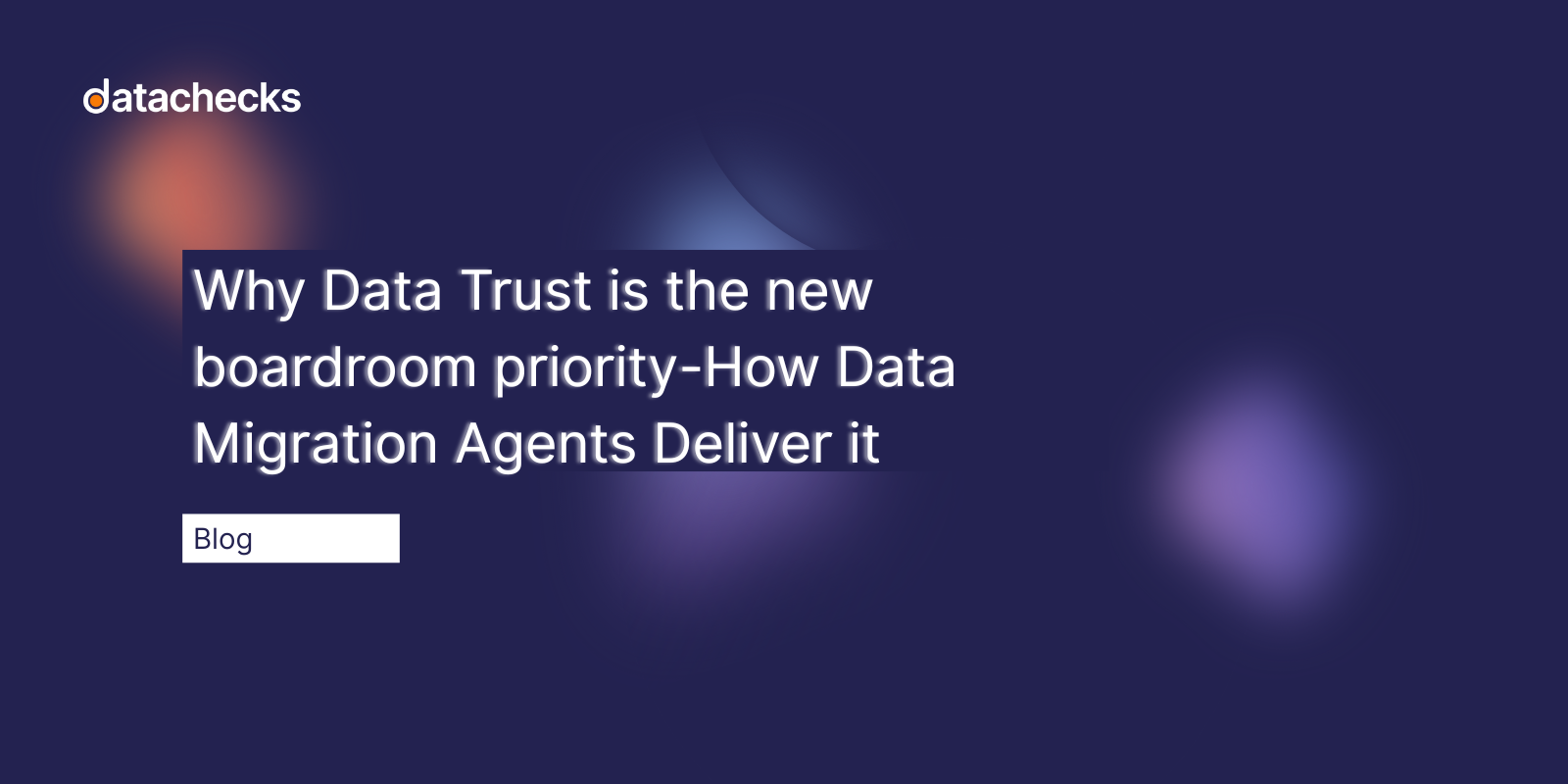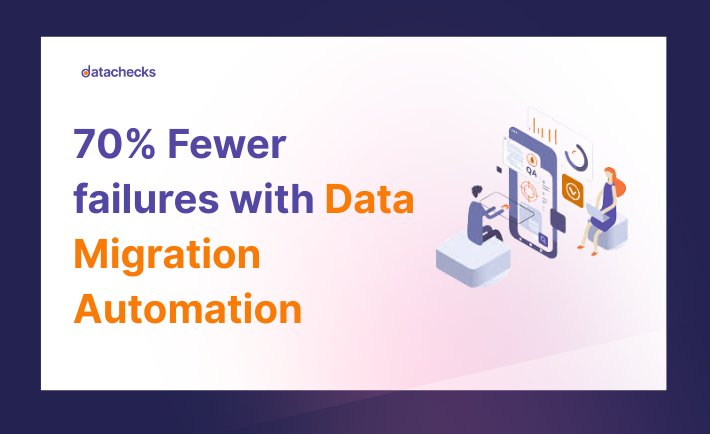Why Data Trust Is the New Boardroom Priority—and How Data MigrationAgents Deliver It
Data trust is now a critical boardroom imperative. In 2025, 68% of board directors rank cybersecurity and data privacy among top priorities. Poor data quality costs organizations $12.9M annually, making automated agents a strategic advantage in protecting shareholder value.

The Executive Awakening: Data Failures Hurt the Bottom Line
Data trust is no longer just an IT issue—it’s a business survival imperative.
IBM research shows US businesses suffer $3.1 trillion in annual losses from data quality issues. On average, organizations lose $12.9M every year due to poor data quality.
EY’s 2024 Americas Board survey reports 68% of board directors now prioritize cybersecurity and data privacy, ranking it just behind economic conditions and capital strategy.
Data failures today aren’t mere hiccups—they destroy reputations, trigger regulations, and erode shareholder value overnight.
The Trust Deficit: Why Traditional Methods Fall Short
It’s not just about having data; it’s about having trustworthy data.
Across cloud moves, system consolidations, or legacy upgrades, 88% of data integration projects fail or exceed budgets due to poor data quality.
33% of organizations delay or cancel IT projects for the same reason.
These failures create "trust deficits": decision-makers lose confidence in their systems, slowing decisions, missing market moves, and weakening competitiveness.
The Agent Revolution: Automation + Intelligence
Enter autonomous agents powered by AI.
Unlike traditional tools needing constant human oversight, Data Migration agents:
- Prevent problems instead of just detecting them
- Understand context, anticipate failures, and auto-correct
- Operate with unmatched consistency and speed at scale
The result?
Real-time data confidence at enterprise scale, while competitors fall behind on validation backlogs and migration delays.
Strategic Advantages: Beyond Cost Avoidance
Data Migration agents deliver far more than avoiding the $12.9M cost of bad data:
- Faster Digital Initiatives: Projects that took months now take weeks, freeing strategic time in competitive markets.
- Risk Mitigation: Automated oversight keeps data secure across complex environments, meeting CISOs’ strategic demands.
- Operational Excellence: Shift from crisis mode to innovation by automating data quality, cutting firefighting costs.
- Regulatory Compliance: Built-in documentation and validation simplify adherence to data privacy laws.
The Executive Implementation Framework
C-suite strategy for agent adoption should focus on three pillars:
- Business Velocity – Eliminate validation bottlenecks for faster market response.
- Risk Management – Real-time monitoring drastically reduces failure exposure.
- Competitive Positioning – Superior data trust enables faster decisions and market agility.
The choice is clear: while others debate, leaders deploy agents for sustainable advantage.
Building Data-Confident Organizations
Tomorrow’s market leaders won’t just have processes—they’ll have automated data confidence.
This means trusting data fully, making decisions fast, and executing strategies without data delays or failures.
It’s not talent or process alone—it’s intelligent automation operating at business speed, with the precision stakeholders and shareholders expect.
Explore The Future of Data Confidence for a deeper dive into strategic automation.
For those ready to shift from firefighting to strategic advantage, Data Migration agents are more than technology upgrades—they’re a competitive necessity.
Develop your strategy with our Executive Guide to Data Migration.
The boardroom question isn’t if data trust matters—it’s whether your organization will lead or follow in this shift.
The leaders of today will shape tomorrow’s competitive landscape.
Poor data quality costs keep rising, but intelligent Data Migration agents are proving that data trust isn’t just achievable—it’s a lasting competitive edge.



.svg)







